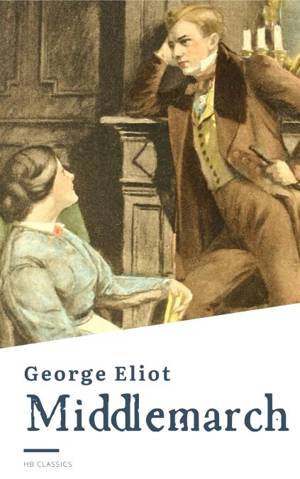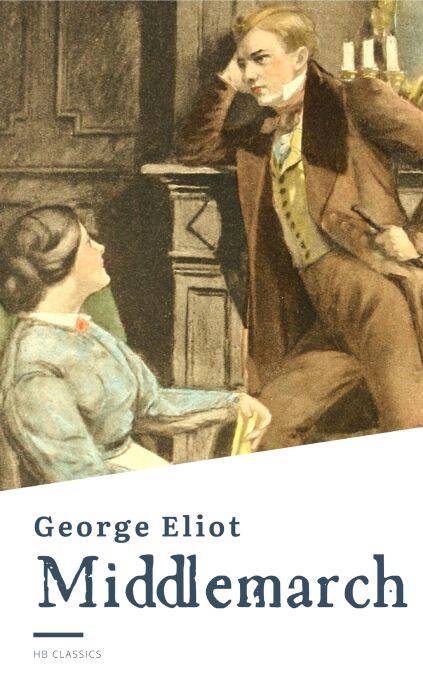
- Afhalen na 1 uur in een winkel met voorraad
- Gratis thuislevering in België vanaf € 30
- Ruim aanbod met 7 miljoen producten
- Afhalen na 1 uur in een winkel met voorraad
- Gratis thuislevering in België vanaf € 30
- Ruim aanbod met 7 miljoen producten
Zoeken
Omschrijving
By the time the novel appeared to tremendous popular and critical acclaim in 1871-2, George Eliot was recognized as England's finest living novelist. It was her ambition to create a world and portray a whole community--tradespeople, middle classes, country gentry--in the rising provincial town of Middlemarch, circa 1830. Vast and crowded, rich in narrative irony and suspense, «Middlemarch» is richer still in character, in its sense of how individual destinies are shaped by and shape the community, and in the great art that enlarges the reader's sympathy and imagination. It is truly, as Virginia Woolf famously remarked, 'one of the few English novels written for grown-up people'.
"One of the few English novels written for grown-up people." —Virginia Woolf
"What do I think of 'Middlemarch'? What do I think of glory — except that in a few instances this 'mortal has already put on immortality.' George Eliot was one. The mysteries of human nature surpass the 'mysteries of redemption,' for the infinite we only suppose, while we see the finite." —Emily Dickinson
"'Middlemarch' is probably the greatest English novel." —Julian Barnes
"They've [women] produced the greatest writer in the English language ever, George Eliot, and arguably the third greatest, Jane Austen, and certainly the greatest novel, 'Middlemarch'..." —Martin Amis
"One of the few English novels written for grown-up people." —Virginia Woolf
"What do I think of 'Middlemarch'? What do I think of glory — except that in a few instances this 'mortal has already put on immortality.' George Eliot was one. The mysteries of human nature surpass the 'mysteries of redemption,' for the infinite we only suppose, while we see the finite." —Emily Dickinson
"'Middlemarch' is probably the greatest English novel." —Julian Barnes
"They've [women] produced the greatest writer in the English language ever, George Eliot, and arguably the third greatest, Jane Austen, and certainly the greatest novel, 'Middlemarch'..." —Martin Amis
Specificaties
Betrokkenen
- Auteur(s):
- Uitgeverij:
Inhoud
- Aantal bladzijden:
- 1127
- Taal:
- Engels
Eigenschappen
- Productcode (EAN):
- 9782380376081
- Verschijningsdatum:
- 24/12/2022
- Uitvoering:
- E-book
- Beveiligd met:
- Digital watermarking
- Formaat:
- ePub

Alleen bij Standaard Boekhandel
Beoordelingen
We publiceren alleen reviews die voldoen aan de voorwaarden voor reviews. Bekijk onze voorwaarden voor reviews.








